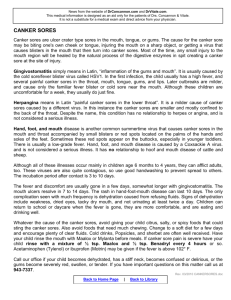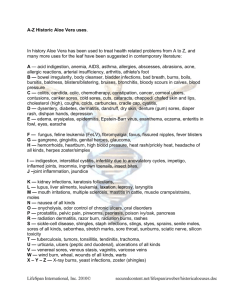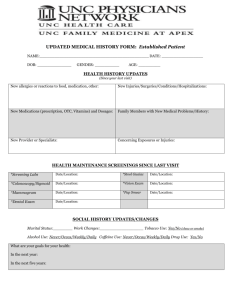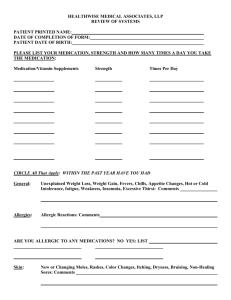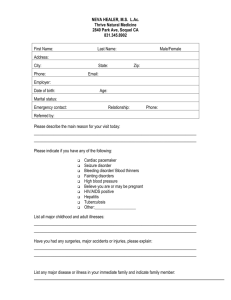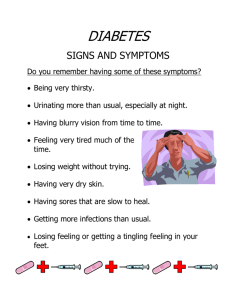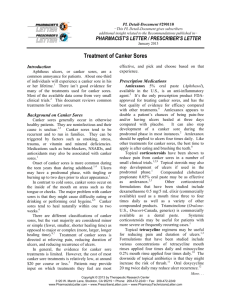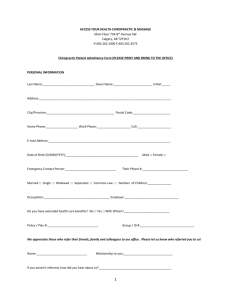Canker Sores - Dartmouth
advertisement
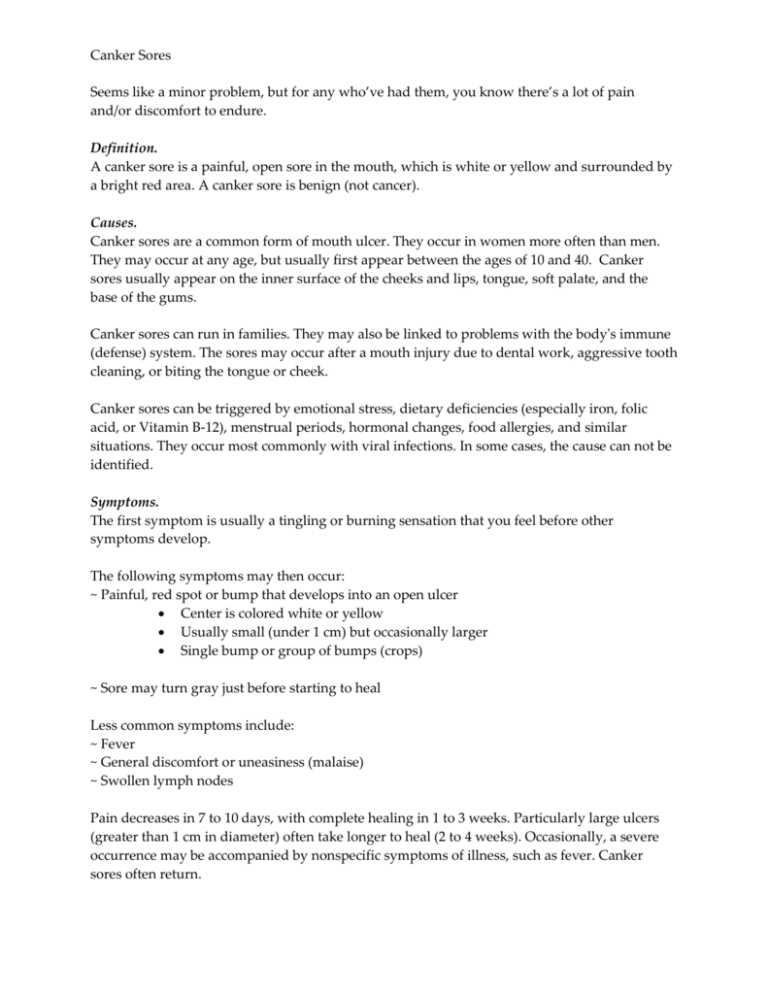
Canker Sores Seems like a minor problem, but for any who’ve had them, you know there’s a lot of pain and/or discomfort to endure. Definition. A canker sore is a painful, open sore in the mouth, which is white or yellow and surrounded by a bright red area. A canker sore is benign (not cancer). Causes. Canker sores are a common form of mouth ulcer. They occur in women more often than men. They may occur at any age, but usually first appear between the ages of 10 and 40. Canker sores usually appear on the inner surface of the cheeks and lips, tongue, soft palate, and the base of the gums. Canker sores can run in families. They may also be linked to problems with the body's immune (defense) system. The sores may occur after a mouth injury due to dental work, aggressive tooth cleaning, or biting the tongue or cheek. Canker sores can be triggered by emotional stress, dietary deficiencies (especially iron, folic acid, or Vitamin B-12), menstrual periods, hormonal changes, food allergies, and similar situations. They occur most commonly with viral infections. In some cases, the cause can not be identified. Symptoms. The first symptom is usually a tingling or burning sensation that you feel before other symptoms develop. The following symptoms may then occur: ~ Painful, red spot or bump that develops into an open ulcer Center is colored white or yellow Usually small (under 1 cm) but occasionally larger Single bump or group of bumps (crops) ~ Sore may turn gray just before starting to heal Less common symptoms include: ~ Fever ~ General discomfort or uneasiness (malaise) ~ Swollen lymph nodes Pain decreases in 7 to 10 days, with complete healing in 1 to 3 weeks. Particularly large ulcers (greater than 1 cm in diameter) often take longer to heal (2 to 4 weeks). Occasionally, a severe occurrence may be accompanied by nonspecific symptoms of illness, such as fever. Canker sores often return. Exams and Tests. Your health care provider can often make the diagnosis by looking at the sore. If canker sores persist or continue to return, tests should be done to rule out other causes, such as erythema multiforme, drug allergies, herpes infection, bullous lichen planus, and other disorders. In rare cases, a type of cancer may first appear as a mouth ulcer that does not heal. A skin lesion biopsy may be used to distinguish a canker sore from other causes of mouth ulcers. Treatment. Treatment is usually not necessary. In most cases, the canker sores go away by themselves. Severe mouth ulcers (larger than 1 cm or lasting longer than 2 weeks) may need to be treated with an antibiotic called tetracycline. (Tetracycline is usually not given to children until after all the permanent teeth have fully developed, because it can discolor still-forming teeth.) Multiple, painful mouth ulcers may treated with an anti-viral medicine such as acyclovir. Powerful antiinflammatory medicines called corticosteroids are used in rare cases. If you have a canker sore, you should not eat hot or spicy foods, which can cause pain. Mild, over-the-counter mouth washes or salt water may help. There are over-the-counter medicines that soothe the painful area. These medicines are applied directly to the sore area of the mouth. To prevent bacterial infection, brush and floss your teeth regularly and visit the dentist for routine care. To speed up healing, try mixing 1 part hydrogen peroxide and one part water and apply it to the canker sore with a cotton swab. Then dab a small amount of milk of magnesia on the canker 3-4 times a day. This also helps relieve discomfort. Outlook (Prognosis). Canker sores usually heal on their own. The pain usually decreases in a few days. Other symptoms disappear in 10 to 14 days. Possible Complications. Antibiotic treatment for canker sores may lead to oral thrush (a type of mouth infection) or other Candida infections. Rarely, bacterial infections such as cellulitis and Ludwig's angina may occur. Mouth cancer is not a complication of canker sores, but if an ulcer lasts more that 2 weeks, you should see your doctor to rule out possible cancer. When to Contact a Medical Professional. Apply home treatment and call your health care provider if symptoms of canker sores persist or worsen, or canker sores recur more often than 2 or 3 times per year. Call your health care provider if symptoms are associated with other problems such as fever, diarrhea, headache, or skin rash. SOURCE: DHMC.org http://www.dhmc.org/webpage.cfm?site_id=2&org_id=510&gsec_id=0&sec_id=0&item_id=2507 1&utility_id=48&fuseaction=hie&id=000998&right_nav= (August, 2007)
